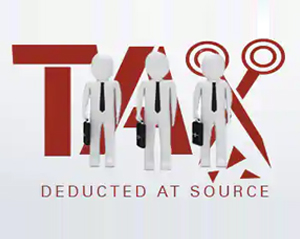Section 80C of The Income Tax Act, 1961 offers multiple tax-saving investment options. It offers a tax deduction of up to ₹ 1.5 lakh in a financial year on your investments in life insurance, fixed deposits, public provident fund, national pension scheme and more. However, Section 80C is not the only section from The Income Tax Act, 1961 that offers tax savings. There are several tax-saving investments other than Section 80C that you can use to lower your tax amount.
Below are some tax saving options other than Section 80C from The Income Tax Act, 1961:
Section 80D - Health insurance premiums
Section 80D offers tax deductions on health insurance premiums of up to a maximum limit of ₹ 25,000 in a financial year. You can claim deductions for a policy bought for yourself, your spouse and your dependent children. If you invest in health insurance, you can get a deduction up to ₹ 25,000 under Section 80D for yourself and your family (₹ 50,000 if the age of insured is 60 years or above) and up to ₹ 25,000 (₹ 50,000 if the age of insured is 60 years or above) for your parents.
Life insurance plans like ICICI Pru iProtect Return of Premium offer a Critical illness* benefit (optional) along with a life cover`. The premiums paid towards the Critical illness* rider are eligible for tax deductions subject to conditions under Section 80D of the Income Act, 1961. The critical illness* benefit provides upfront money on detection of any of the 64 critical illnesses* covered by the plan. Submission of medical bills is not required. The amount can be used to cover treatment costs, day-to-day expenses, and more.
Section 80DD - Expenses towards a handicapped dependant
Section 80DD offers a tax deduction on the expenses incurred on the medical treatment of a disabled dependant. The disability of the dependant should be at least 40% or more as defined under Section 2(i) of the Persons of Disabilities Act, 1995. You can claim a maximum of ₹ 75,000/- if the disability is not less than 80% and up to ₹ 1.25 lakh if the disability is more than 80%.
Section 80DDB – Expenses towards treatment of specified illnesses
Section 80DDB offers a tax deduction on the expenses incurred on the treatment of specified diseases and ailments, such as neurological diseases with a disability level of 40% and above, malignant cancers, chronic renal failure and more. You can claim a tax deduction of ₹ 40,000/- in a financial year or the amount actually spent, whichever is less.
In case of senior citizens, the deduction limit is ₹ 1,00,000/- per annum, or the amount actually spent, whichever is less.
Section 80E – Interest payment towards education loan
Section 80E offers a tax deduction on interest paid towards education loan. There is no minimum or maximum limit that can be claimed under this section. However, the deductions are available for a maximum period of eight years or till the total interest is paid, whichever is earlier.
Section 80EE - Home loan interest payment for first-time home-owners
Section 80EE offers a tax deduction on the interest paid towards a home loan for a residential property. You can claim a maximum deduction of ₹ 50,000/- in a financial year subject to fulfilment of the conditions prescribed under this section.
Section 80G - Donations to approved charitable institutes
Section 80G offers tax deductions on donations and charities made to certain approved institutions. No deduction shall be allowed under this section in respect of donation of any sum exceeding two thousand rupees unless such sum is paid by any mode other than cash.
Section 80GG - Rent paid by employees without HRA component in salary
Taxpayers who do not receive House Rent Allowance (HRA) from the employer and pay rent for a house or accommodation occupied by themselves can claim a deduction under Section 80GG. The deductible limit is the lower of the below three:
- ₹ 5,000 per month
- 25% of the total income
- Total rent paid minus 10% of the total income
Section 80GGA - Donation to specified institutions
Section 80GGA offers a tax deduction for donations made to specified institutes towards scientific research or rural development subject to conditions specified under this section.
Section 80GGC - Contributions made to a political party
Section 80GGC offers a tax deduction for donations made to political parties or electoral trusts. No deduction shall be allowed under this section in respect of any sum contributed by way of cash.
Section 80TTA - Saving account interest
Section 80TTA offers a tax deduction to individuals and HUFs (other than those covered under Section 80TTB) of up to ₹ 10,000 in a financial year on the income earned from interest on savings accounts opened with a bank, post office, or cooperative society.
Section 80RRB - Royalty income from patents
Resident Indian taxpayers can earn income from royalties from a patent. The patent should be registered on or after April 1, 2003, under the Patents Act 1970. The total tax deduction under the section can be up to ₹ 3 lakh per annum or the total income earned from royalty, whichever is less subject to conditions prescribed under this section.
People like you also read ...






